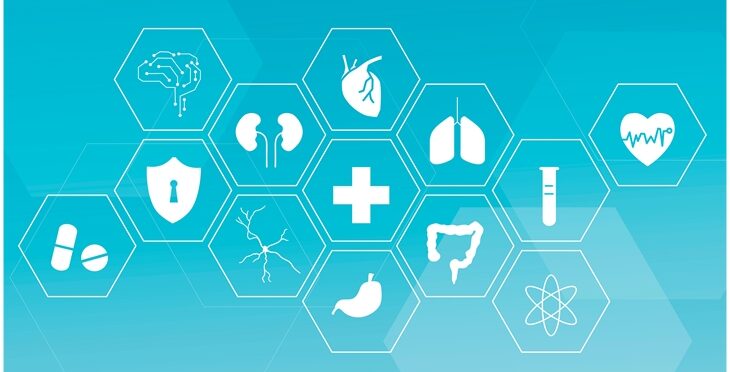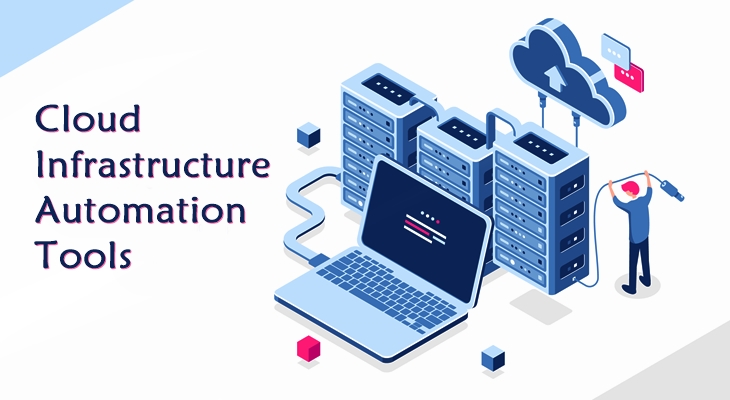Medical Diagnosis with Machine Learning is one of the biggest applications in Healthcare. Machine learning can detect patterns of specific diseases. It can then alert clinicians to any irregularities. In this way, artificial intelligence becomes the second set of eyes. AI can also assess a patient's health based on knowledge collected from large data sets. It does so by aggregating millions of observations of a patient's diseases.
Medical Diagnosis With Machine Learning
Clinical data analysis allows a better understanding of underlying mechanisms that underpin diseases. It also gives us an understanding of how risk factors influence disease progression.
Clinicians now have access to a significant amount of data. It also includes everything from clinical symptoms to biochemical testing and imaging device outputs.
Here are some instances of data that help to produce a precise medical diagnosis with machine learning:
- Disease data: Physiological measures and information on recognized diseases or symptoms that an individual has encountered.
- Environmental data: Information about a person's exposure to the environment. It can be such as smoking, sunbathing, and weather conditions.
- DNA Data: All or a significant part of an individual's DNA sequence is genetic data.
Machine learning has been a useful tool for identifying diseases. But, it can be tough to install without programming abilities or technical equipment.
- Benefits Of Using Machine Learning For Medical Diagnosis
- Helps In Identifying Diseases And Diagnosis
- Drug Development And Production
- Diagnosis Through Medical Imaging
- Tailored Medicine For Individuals
- Health Records With Intelligence
- Clinical Research And Trials
- Data Gathering
- Medications
- Prediction Of An Outbreak
- Electronic Health Recorder (EHR)
- Robotic Surgery
- Challenges Of Using Machine Learning
Benefits Of Using Machine Learning For Medical Diagnosis
Helps In Identifying Diseases And Diagnosis
Machine learning can identify and detect diseases and symptoms that are difficult to diagnose. It also diagnoses difficult to detect malignancies in the early stages to other hereditary illnesses. One of the prime instances of cognitive computing is IBM Watson Genomics.
Drug Development And Production
Early-stage drug discovery is one of the key clinical benefits of ML in Healthcare. R&D technologies such as next-generation sequencing and precision medicine are also included. It may aid in the discovery of new treatment options for complex disorders. Unsupervised learning can also find patterns in data without making any predictions.
It is now one of the most beneficial machine learning techniques. Project Hanover is a Microsoft initiative. It utilizes ML-based tech for a variety of initiatives. It also includes AI-based cancer treatment and tailored medicine for Acute Myeloid Leukemia.
Diagnosis Through Medical Imaging
The revolutionary technique of Computer Vision works on machine learning and deep learning. Microsoft's InnerEye is one of the biggest supporters of computer vision. It focuses on image diagnostic tools for image analysis. We can also expect more data sources from the whole range of medical images to become a part of an AI-driven diagnosis process. This would happen as ML becomes more accessible and their explanatory capacity grows.
Tailored Medicine For Individuals
ML in health care aids in the development of personalized medicines. These are more efficient and effective when combined with predictive analytics. Also, they are ripe for further research and better disease evaluation.
Physicians are currently confined to selecting from a limited selection of diagnoses. They even exclude dangers to the patient based on his clinical history and accessible genetic information.
Biosensors and devices with advanced health monitoring capabilities will soon join the market. This will also make more data available for the most cutting-edge ML-based healthcare solutions.
Health Records With Intelligence
Maintaining good health records is a time-consuming procedure. Technology has also aided the process of data entry. Still, a big part of the processes still takes a long time to complete. ML in Healthcare helps to streamline procedures to save time, money, and effort. Document categorization approaches on ML-based OCR techniques are slowing the gathering of the stream.
Clinical Research And Trials
There are concerns on how to perform and apply ML in the healthcare industry. Machine Learning has a wide range of possible uses in research and clinical trials.
Clinical trials involving urgent care cost a lot of money. They can also take years to complete in many circumstances. Using ML-based predictive analysis can find possible clinical trial applicants. It can also assist researchers in creating a pool of candidates from a variety of data sources. These data sources also include social media, previous doctor visits, and so on.
ML has also discovered some of the applications to ensure real-time data access and monitoring of trial participants. It also calculates funding the optimal sample size to be tested and utilizes the power of electronic records. All this contributes to the reduction of data-based errors.
Data Gathering
Crowdsourcing is all the rage in the medical industry. It allows researchers and practitioners to access a complete range of information. Real-time health data also has significant implications for how medicine will evolve in the future. Apple offers its own ResearchKit. It allows users to access interactive apps that use ML-based facial recognition. It also helps to cure Parkinson's disease and Asperger's disease.
AI Neural Networks assist in the collection of data and forecasting diseases. It detects everything from malaria outbreaks to severe chronic infectious diseases. Predicting outbreaks is especially important in third-world countries. ProMED–mail is an internet-based reporting management platform. It assists in the monitoring of evolving and emerging illnesses. It also provides outbreak reports in a real-time scenario.
Medications
The application of ML in Healthcare is already used in the enhancement of medications. ML finds applications in anesthesia to breast cancer treatment to daily drugs. Watson is the renowned IBM supercomputer. It is also collaborating with pharma companies to increase drug discovery in various areas.
Prediction Of An Outbreak
AI & ML tech is now utilized to predict and track epidemics all around the world. In today's world, scientists have access to a tremendous amount of data. Google has also been in this game for a long time. Moreover, they have been far more amazing in the potential for ML to guide and improve treatment options.
Electronic Health Recorder (EHR)
ML applications help to improve the electronic health record system. This application aims to create a system that can filter patient inquiries via email. It can also convert a manual record system into an automated machinery system. Moreover, the main goal of this program is to provide a system that is both safe and easy to use.
Robotic Surgery
In the healthcare industry, robotic surgery is one of the most important benchmark ML applications. This software will soon include in some of the most promising locations. Robotic Surgery includes the following subcategories of ML application:
- Surgical skill evaluation
- Surgical workflow modeling
- Automatic suturing, and
- Robotic surgical material advances
Suturing is the procedure for closing an open wound with the help of stitches. Suturing automation could shorten the surgical procedure and reduce surgeon fatigue. Researchers are also attempting to use an ML approach to assess the surgeon's robot-assisted minimally invasive surgery performance.
Challenges Of Using Machine Learning
Data Mismatch
AI and ML can improve any process in the healthcare business. ML requires high-quality structured data to produce accurate predictions. Gaps in healthcare data can lead to inaccurate forecasts. This can have a severe impact on clinical decision-making.
The heterogeneity of data in Healthcare is now a constraint for widespread ML deployment. Thousands of handwritten document scans and fragmented data could lead to insufficient insights and inaccurate conclusions. Moreover, before ML algorithms can exploit the data, it must first be formatted and cleansed.
Scarcity Of Qualified Personnel
The lack of good data engineers is also a stumbling block to ML. Also, one of the most significant impediments to widespread AI and ML deployment is a scarcity of competent specialists.
Provider Aversion
Overcoming provider reluctance to machine learning in Healthcare is the most difficult obstacle. Medical organizations must update or replace outdated systems to adopt machine learning. This necessitates resources that may be scarce, particularly during a public health emergency.
Conclusion
ML applications in healthcare have the potential to revolutionize diagnosis and treatment. Moreover, this technology is already in use. It has also shown to be effective in the early detection of breast, skin, and liver cancers. In areas of imaging diagnostics & surgical suturing, ML algorithms have already outperformed clinicians. ML algorithms have also helped achieve better results in less time.
Machine vision is becoming a frequent thread in these diagnostic applications. It is worth noting that advancements in ML will link to trustworthy diagnostic applications. Moreover, the utility of this tech in the actual world and the extent to which it will be utilized in the field of diagnostics will depend on the process of trial and error.
You may also like to read:
Disruptive Tech Innovations In Healthcare: Examples and Trends
Applications of Computer Vision in HealthCare
Machine Learning In Quantitative Finance: Trends And Applications
Best Machine Learning Algorithms: A List Of 10 Best Algorithms





